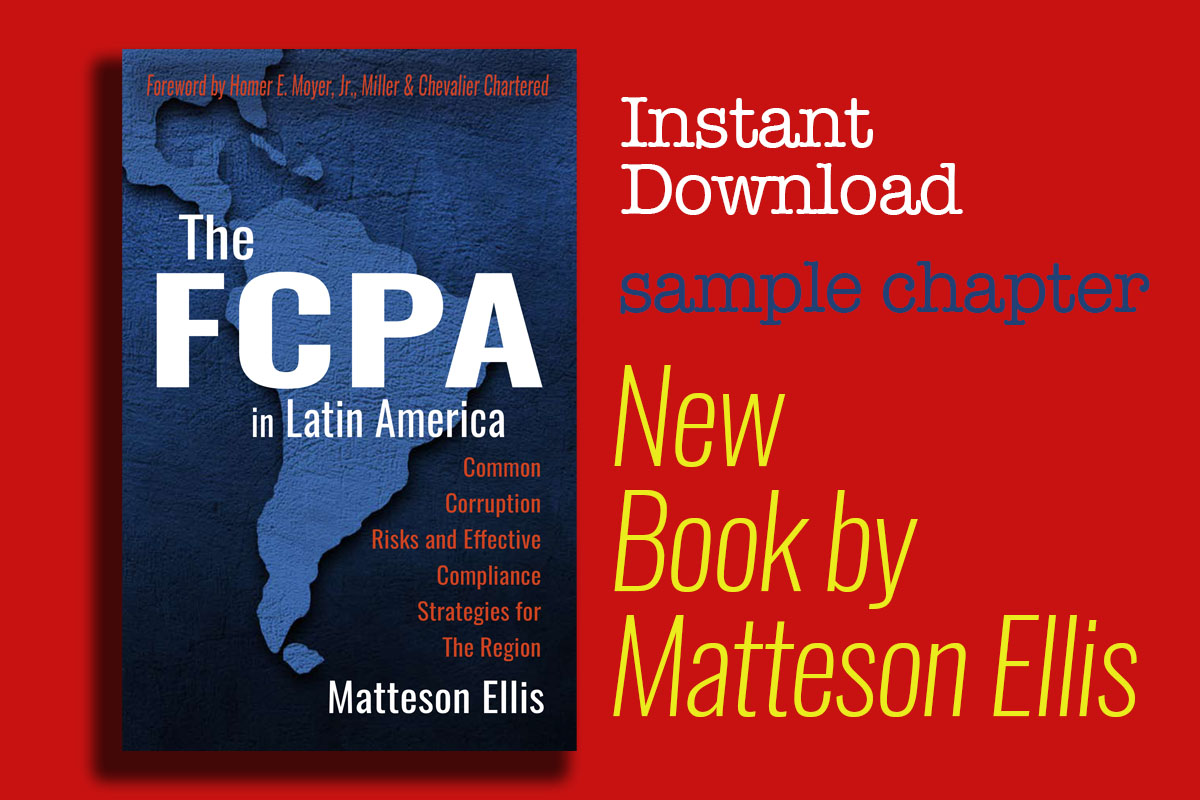with co-author Tihomir Yankov
This piece was originally shared on Law360 and is republished here with permission.
It has been well over a year since Judge Andrew Peck gently excoriated the legal community for underusing the not-so-new privilege waiver protections of Federal Rule of Evidence 502(d). He has fondly referred to it as the “Get Out of Jail Free Card” and offered that “it is akin to malpractice not to get [a Rule 502(d)] order.”[1] It is a powerful hand indeed: a Rule 502(d) order can protect litigants against privilege waiver without having to prove that they have taken reasonable steps to prevent an inadvertent production of privileged documents. While Judge Peck’s remarks may have raised awareness of the Rule’s novel and expansive protections for litigants in federal court, Rule 502 as a whole, together with any potential federal agency regulations concerning privilege waiver, offers little peace of mind to parties subject to government investigations.
Buckets of judicial ink have been spilled lamenting the mounting costs of discovery obligations in the dawn of email and big data. To be sure, technological advances in e-discovery, like predictive coding and advanced analytics, have made great strides in alleviating the pain that technology itself has inflicted on litigants. But technology is no panacea for our discovery system’s ills — the solution lies in its marriage with legal innovation.
Yet the latter is still not carrying its weight as lawyers continue to fear the prospects of waiving privilege in the 275,801st document of last March’s production. Without a doubt, Rule 502 (and the 2015 revisions to the Federal Rules of Civil Procedure) has marked a solid start in the right direction: it was enacted in 2008 in part to “respond to the widespread complaint that litigation costs necessary to protect against waiver of attorney-client privilege or work product have become prohibitive due to the concern that any disclosure (however innocent or minimal) will operate as a subject matter waiver of all protected communications or information.”[2]
While Congress may have enacted Rule 502 to replace the patchwork of federal common law governing privilege waiver in litigation,[3] agencies are left to decide on an individual basis whether, and to what extent, to adopt the Rule’s provisions in their own administrative proceedings or investigations.
Even though the Rules Advisory Committee acknowledges that “[t]he consequences of waiver, and the concomitant costs of pre-production privilege review, can be as great with respect to disclosures to offices and agencies as they are in litigation,”[4] textually, the thrust of Rule 502 governs the existence and reach of privilege waiver only in federal or state proceedings, to the exclusion of agency proceedings or investigations,[5] even in cases where the privileged documents have been produced to a federal office or agency. Put differently, the Rule may govern privilege waiver in cases where parties are subject to parallel (or sequential) federal investigation and civil litigation, but it does not address the scope of waiver — or the threshold question of whether there has been a waiver — with respect to the federal agency itself.
This is not an indictment of Rule 502 itself — it is not designed to govern privilege waiver with respect to agency investigations.[6]
Unfortunately, federal agencies have not faced a corresponding amount of pressure and scrutiny to reform their investigative rules concerning privilege waiver to bring them in line with the Federal Rules of Evidence: after all, judicial ink rarely splashes on agencies’ investigative turf. As a result, the law on privilege waiver continues to evolve almost exclusively in the context of litigation.
While courts — and Congress — have been experimenting and tweaking the Rules of Evidence and their application in the dawn of the information revolution, agencies have been slower in making parallel adjustments. This leaves investigated entities with fewer clear protections against privilege waiver, despite the astounding amount of information that is produced in a typical government investigation.
Even if an agency has taken a step toward harmonization, investigated parties may be marching to a muted tune. For example, the Consumer Financial Protection Bureau has adopted Rules 502(a) and (b) (discussed below) nearly verbatim as part of its investigative procedures,[7] providing investigated parties with protections against subject matter waiver and inadvertent disclosure. But the Bureau’s rules do not include the broader protections of Rule 502(e), which allow parties to enter into voluntary agreements governing privilege waiver. Furthermore, the broad protections of Rule 502(d) court orders are usually out of reach for most investigated parties. In some cases, the lack of uniformity in approach as to privilege waiver may also result in conflicts between federal agencies, potentially complicating one’s response in the course of multiagency investigations.
On the plus side, to the extent that federal agencies may have adopted parts of Rule 502,[8] investigated parties may not only rely on those protections in nonpublic government investigations, but may also cite to developing case law interpreting Rule 502 provisions to government enforcement lawyers and administrative law judges alike, at least as persuasive authority.
Rule 502(A): Robust Protections against Subject Matter Waiver
The prospect of subject matter waiver — the proposition that a waiver of privilege as to a disclosed document may also be extended to undisclosed privileged documents if they concern the same subject matter — has long rattled lawyers, especially in cases involving electronic discovery.[9] Rule 502(a) significantly allayed that anxiety: subject matter waiver now can be found only where privilege has been waived intentionally (such as for strategic reasons), and fairness dictates that the undisclosed information also be produced if it relates to the same subject matter.[10] The Committee notes reiterate that subject matter waiver is reserved only for “unusual situations” and that “an inadvertent disclosure of protected information can never result in a subject matter waiver.”[11]
The protections against subject matter waiver do apply when the disclosure of privileged information is “made in a federal proceeding or to a federal office or agency,”[12] but, as discussed above, the Rule does not govern with respect to the agency itself.
While courts differ as to what constitutes an intentional waiver, or in what cases fairness would require disclosure, the overwhelming trend has been to deny subject matter waiver unless a party selectively disclosed privileged material in order to gain a strategic advantage.[13] As a result, investigated parties may be able to take comfort in knowing that inadvertent disclosure will not lead to a broader subject matter waiver in a future or parallel federal proceeding, and — if an investigating agency has promulgated a parallel rule governing its investigations — with respect to the agency itself as well.
[1] J.P. Midgley, ‘Get out of jail free’ card in e-discovery, Buffalo Law Journal, Buffalo Business First (July 8. 2015), 09:00 AM), http://www.bizjournals.com/buffalo/blog/buffalo-law-journal/2015/07/get-out-of-jail-free-card-in-e-discovery.html (last visited Aug. 8. 2016)
[2] Fed. R. Evid. 502 Advisory Committee’s note.
[3] For an in-depth discussion regarding trends in judicial interpretation of privilege waiver after the enactment of Rule 502, see Paul W. Grimm, Lisa Yurwit Bergstrom & Matthew P. Kraeuter, Federal Rule of Evidence 502: Has It Lived Up to Its Potential?, XVII RICH. J.L. & TECH. 8, 18 (2011), http://jolt.richmond.edu/v17i3/article8.pdf. (quoting Fed. R. Evid. 502 Advisory Committee’s note) (analyzing conflicting judicial interpretations and noting that “[c]ourts called upon to interpret Rule 502 should be especially diligent in construing it in a manner that is consistent with its purpose. Otherwise, its goal of ‘provid[ing] a predictable, uniform set of standards under which parties can determine the consequences of a disclosure of a communication or information covered by the attorney-client privilege or work-product protection’ cannot be achieved.”).
[4] Fed. R. Evid. 502 Advisory Committee’s note (emphasis added).
[5] See Fed. R. Evid. 502(f), 101(a), and 1101.
[6] Id.
[7] 12 C.F.R. § 1080.8(c).
[8] E.g., 16 C.F.R. § 3.31(g) and 74 FR 20205-01, 20207 (“The [Federal Trade] Commission concludes that [certain Rule 502] provisions are equally appropriate for its administrative proceedings whether the disclosure occurs during a Part 3 proceeding or during a Commission precomplaint investigation.”).
[9] Fed. R. Evid. 502 Advisory Committee’s note.
[10] Fed. R. Evid. 502(a).
[11] Fed. R. Evid. 502 Advisory Committee’s note (emphasis added).
[12] Fed. R. Evid. 502(a).
[13] David D. Cross & Nathiya Nagendra, The Demise of Subject Matter Waiver: Federal Rule of Evidence 502(a) Five Years Later, Digital Discovery & e-Evidence, Bloomberg BNA (2013).



 Elizabeth McGinn is a partner in the Washington, DC and New York offices of BuckleySandler LLP. Ms. McGinn advises clients on consumer financial services, e-discovery and privacy-related issues. She may be reached at
Elizabeth McGinn is a partner in the Washington, DC and New York offices of BuckleySandler LLP. Ms. McGinn advises clients on consumer financial services, e-discovery and privacy-related issues. She may be reached at 









